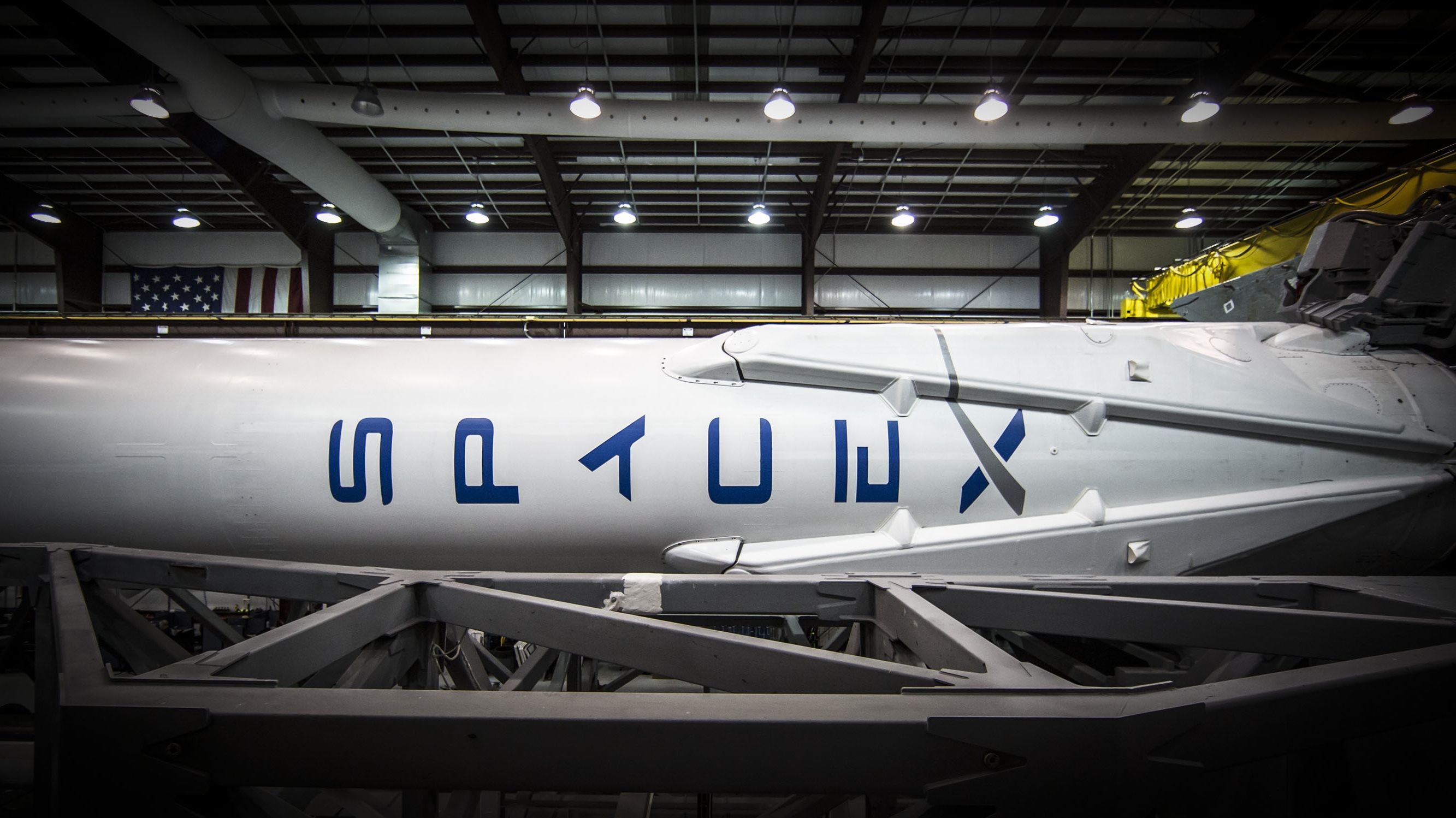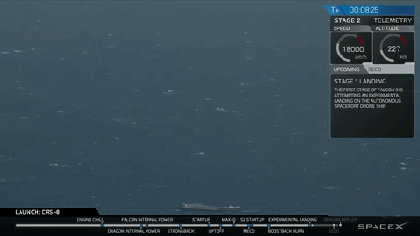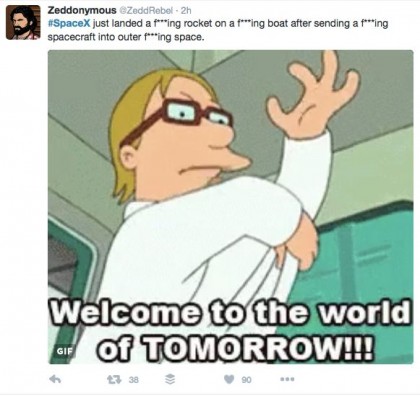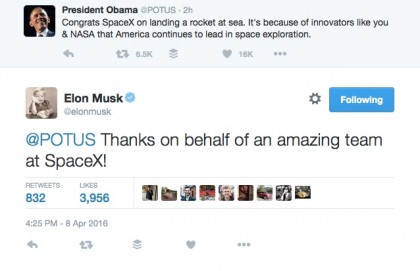SpaceX can finally say 'I'm on a boat.' Here's why that matters
Analysis: Mars, space tourism and overall awesomeness

History-altering moments can happen when you least expect it. I'm pretty sure we just witnessed one of those Friday.
For anyone who missed it, SpaceX launched a Falcon 9 rocket into orbit, then landed it upright on a drone ship bobbing in the Atlantic Ocean. It had tried to do this four times before, but failed each time, sometimes spectacularly. This time, though, it got it spectacularly right.
The rocket landed by itself, and it couldn't have done so more perfectly. It approached the ship in a tight arc, as graceful as a ballerina. Its delicate trail of burning fuel sliced through the vast ocean expanse with a blazing white light. It touched down expertly, confidently. It basically kicked that landing's a**.
SpaceX CEO Elon Musk described landing a rocket on a floating ship the size of a football field in the middle of the ocean as like trying to land something on a postage stamp. In other words, it's really f***ing hard.

Nailed it.
Save some sea-notes
If it's so hard, why bother with sea landings at all? Many have asked, so let's explore.
Musk said at a NASA press conference that half of SpaceX's missions will require sea landings. The reason for this is that rockets that go beyond Earth's orbit likely won't have enough fuel to bring them back to solid ground.
Sign up for breaking news, reviews, opinion, top tech deals, and more.
Instead of writing the rockets off as lost causes and letting them crash into the ocean, SpaceX wants to recover its rockets so it can reuse them for later missions. This will lead to less time between launches as well as save SpaceX vast amounts of money.
A new Falcon 9 rocket costs $54 million to build, but only burns about $200,000 worth of fuel when it goes into orbit, according to Vox.com.
Musk said he thinks nearly all of the Falcon 9 rocket could be reused 10-20 times, while its parts could be used several thousand times over. And the rocket that went up today? It could be ready to go again by June.
It's simple math: Reusable rockets cut down costs. SpaceX can conduct more missions, ones that take it further and further away from Earth and closer and closer to Mars. It also increases the possibility of (relatively) cheap space tourism because now the cost it would take to build new rockets won't be transferred to customers.
That ticket to space is starting to look a lot more affordable...
Space high five!
Musk's mission is to open up space access to private companies and civilians who'd otherwise be prohibited from the outer reaches, if only because the price is too damn high (but also because most of us aren't trained astronauts).
With Friday's launch and landing, he and the rest of SpaceX are one step closer to making cheap space travel a reality.
The journey up till this point has been riddled with failures, yet SpaceX never stopped. Its relentless drive makes this new success all the more poignant.
Watching the launch live feed, the eruption of cheers from the SpaceX team when the rocket touched down was the most joyous sound I've heard in a long time.
It was pure ecstasy in that room, but it wasn't confined to there.
The tweets started flowing as freely as the champagne probably did at SpaceX HQ. The hashtag "#SpaceX" blew up, and it's still going strong as I write this.

Even President Obama tweeted his congrats. Of course, Musk responded.

The collective high five that rang round the world was inspiring. It was like we'd all just seen an amazing game-winning goal, except it wasn't sports that brought us together, but a rocket landing on a ship somewhere out in the ocean. Who would have thought?
I'm too young to have witnessed the moon landing or The Beatles performing on The Ed Sullivan Show, moments that defined a generation. I am, however, living in a time when a man named Musk ended one week by announcing a new car, then wrapped up the next with a NASA press conference talking about a historic feat his company just pulled off.
Getting to Mars and shuttling regular folks to the stars are still years away, but today showed us that we're well on our way there, and maybe even closer than we thought. It's quickly becoming real, guys. I suggest you hold on.

Michelle was previously a news editor at TechRadar, leading consumer tech news and reviews. Michelle is now a Content Strategist at Facebook. A versatile, highly effective content writer and skilled editor with a keen eye for detail, Michelle is a collaborative problem solver and covered everything from smartwatches and microprocessors to VR and self-driving cars.